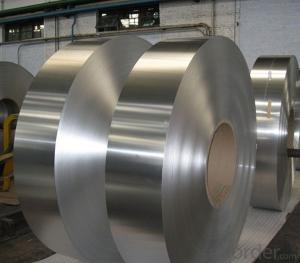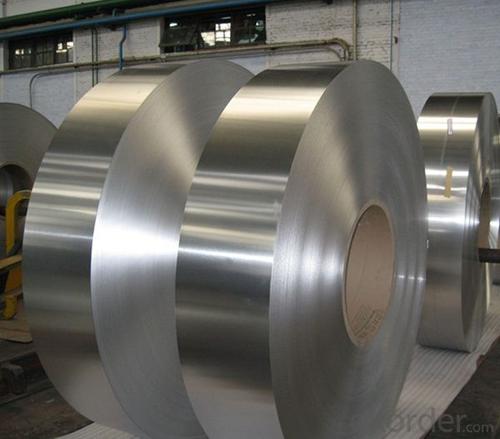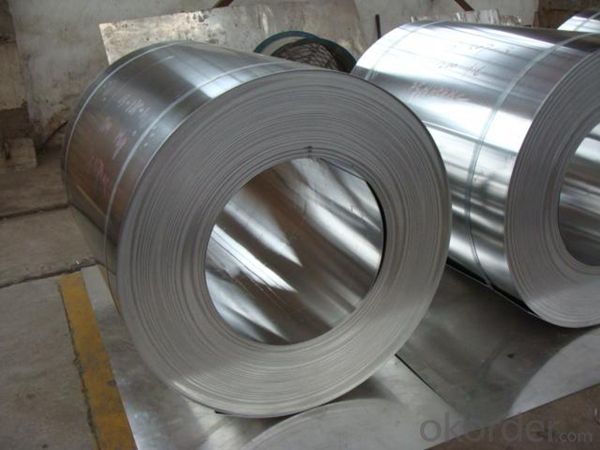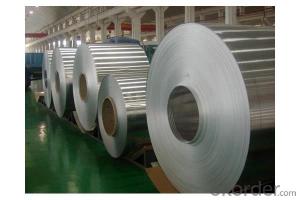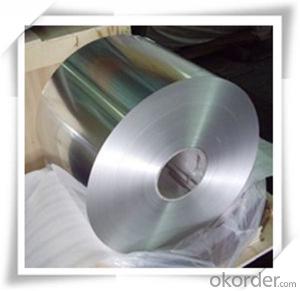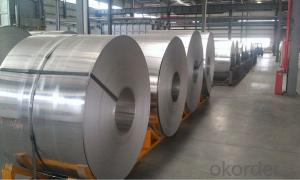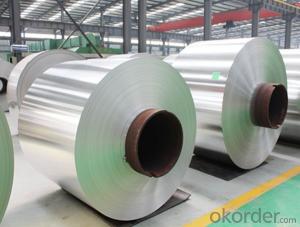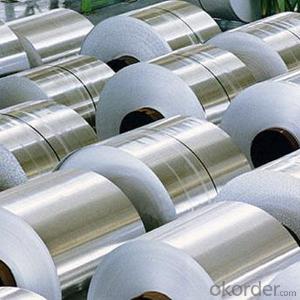Grey Bronze Aluminum Coil for Metal Roofing 1xxx 3xxx 5xxx
- Loading Port:
- Shanghai
- Payment Terms:
- TT OR LC
- Min Order Qty:
- 5 m.t.
- Supply Capability:
- 1000 m.t./month
OKorder Service Pledge
OKorder Financial Service
You Might Also Like
Specification
Aluminum Coil for Metal Roofing 1XXX 3XXX 5XXX
1.Structure of Aluminum Coil for Metal Roofing 1XXX 3XXX 5XXX
Aluminum Sheets are strengthened and cut from raw materials with different alloys, such as AA5005, AA5052, etc. They are easy for processing in different shapes, good in intensity and can be quickly installed. Aluminium Sheets for Energy Saving Curtain Walls are good in energy saving, weather resistance, fire resistance, easy for maintenance and with many colors.
Aluminium Sheets for Energy Saving Curtain Walls are widely used in construction of metal walls, metal ceilings, car decoration, advertizing panels, etc.
2.Main Features of Aluminum Coil for Metal Roofing 1XXX 3XXX 5XXX
•High intensity
•Easy to be processed and shaped
•Weather resistance
•Anti-pollution & environment protection
3. Aluminum Coil for Metal Roofing 1XXX 3XXX 5XXX Images
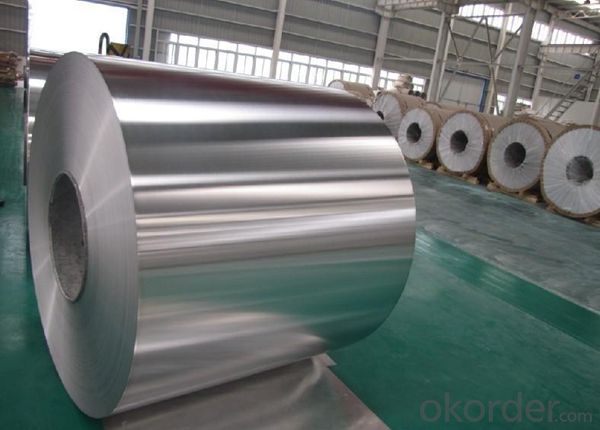
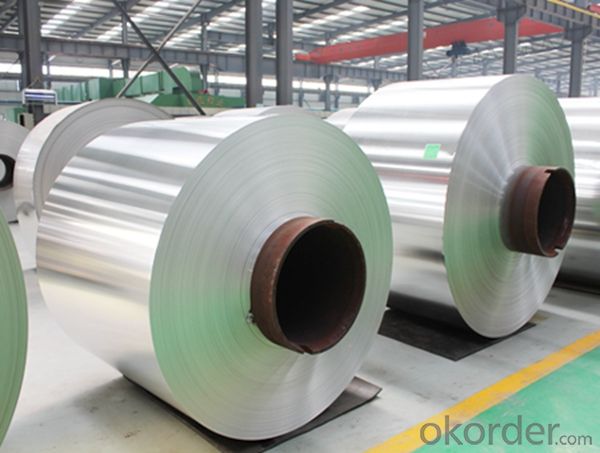
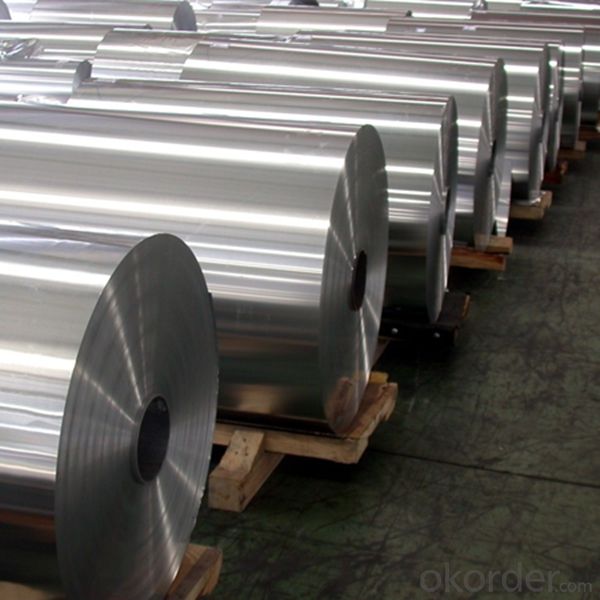
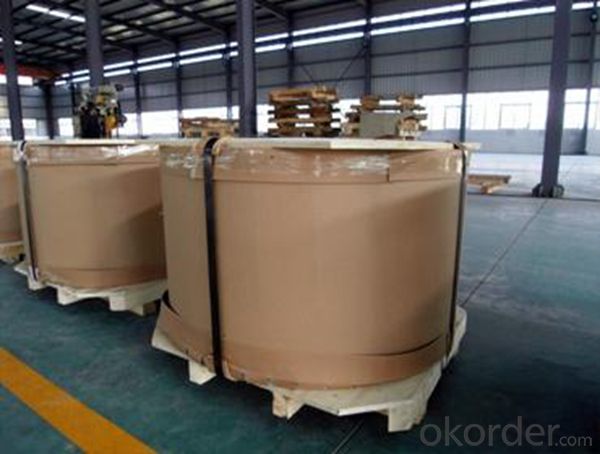
4.Specification of Aluminum Coil for Metal Roofing 1XXX 3XXX 5XXX
Alloy Number | AA5XXX 1XXX 3XXX |
Temper | H12, H14, H16, H18, H22, H24, H26, H32, HO, F |
Thickness | 0.1mm – 500mm |
Width | 10mm- 2200mm |
Standard | GB/T3880-2006, ASTM, ISO, EU standard |
5.FAQ of Aluminum Coil for Metal Wall 1XXX 3XXX 5XXX
A.What about inspections to guarantee quality?
For each order for Aluminum Sheets with Mill Finished Surface AA5XXX, we will arrange strict inspection for raw materials, inspection during production and inspection for finished goods.
With requirement of customers, we also can arrange the third party inspection.
B.What about delivery?
We will put order for Aluminum Sheets with Mill Finished Surface AA5XXX in production schedule after order gets confirmed against copy of TT or L/C. Normally it takes about one month for production. Exact shipment schedule is different based on different sizes and quantity.
C.What is the MOQ?
5 tons for each size.
D. Where have you exported aluminium sheets?
We have exported aluminum sheets to many countries. Main markets include South East Asia, Middle East, North America, South America, etc.
- Q: Can aluminum coils be used for heat transfer applications?
- Indeed, heat transfer applications can utilize aluminum coils. The commendable thermal conductivity of aluminum renders it remarkably efficient in transferring heat. In multiple heat transfer applications like air conditioning systems, refrigeration units, and heat exchangers, aluminum coils are frequently employed. The lightweight nature of aluminum, coupled with its resistance to corrosion, further contributes to its widespread preference in these applications. Moreover, the malleability of aluminum coils allows for the facile shaping and forming, thereby facilitating efficient heat transfer even in intricate systems.
- Q: Is it possible to utilize aluminum coils for the storage of food items?
- <p>Yes, aluminum coils can be used to store foodstuffs, particularly in the form of aluminum foil. Aluminum foil is a common food storage material due to its properties such as being lightweight, flexible, and providing a barrier against air and moisture. It is often used for wrapping food for cooking, freezing, or preserving. However, it's important to ensure that the aluminum does not react with the food, especially acidic foods, as this could lead to contamination. Additionally, it's not recommended for long-term storage as it does not provide a complete seal or barrier against all contaminants.</p>
- Q: How are aluminum coils used in the production of furniture?
- Aluminum coils are commonly used in the production of furniture as they can be easily formed and shaped into various components such as frames, legs, and supports. These coils are often bent, cut, and welded to create the desired furniture structure. Aluminum's lightweight yet strong properties make it an ideal material for furniture manufacturing, offering durability and resistance to corrosion. Additionally, aluminum coils can be coated or painted to enhance their aesthetic appeal and match different design preferences.
- Q: This question asks for an explanation of the distinctions among various grades of hot rolled aluminum coils, focusing on their characteristics and applications.
- <p>Different grades of hot rolled aluminum coils are distinguished by their chemical composition, mechanical properties, and applications. Grades like 1000 series are pure aluminum with high ductility and electrical conductivity, suitable for general purposes. 3000 series, with added manganese, offer moderate strength and are used in cooking utensils and chemical equipment. 5000 series, containing magnesium, are strong and corrosion-resistant, used in marine applications and aerospace. 6000 series, with silicon and magnesium, are known for their mechanical strength and are used in construction and automotive parts. Each grade has specific alloying elements that tailor its properties for different industrial needs.</p>
- Q: We are shopping for a new LQ trailer. We are looking at several different brands and noticed that some have aluminum skin on an aluminum frame, and others have aluminum skin on a steel frame. Other than the obvious differences in weight and cost, what are other benefits/disadvantages of each? Thanks
- Well, you already know the differences in weight and cost, so I won't address those. Advantages to an aluminum frame are that it will not rust although it may corrode. However, most steel frames now are coated to protect them from the elements and prevent rusting. Or, the steel can be galvanized. So, if you get a steel frame, check for this. Aluminum is a more brittle metal than steel, so some people think that is does not perform as well in a crash. However, there are no horse trailer crash statistics published to prove or disprove this. The flip side is that a steel frame can have hidden rust weakening it and making it perform poorly in a crash. Should something happen to your frame, steel is often reparable, while aluminum sometimes is not and the trailer is totaled. Aluminum is more difficult to weld than steel.
- Q: Can aluminum coils be used in agricultural applications?
- Aluminum coils are suitable for agricultural applications. They offer numerous benefits for agricultural purposes due to their versatility and lightweight nature. In the agricultural industry, aluminum coils are commonly utilized in greenhouse frames, irrigation systems, and grain storage bins. The resistance to corrosion is one of the key advantages of aluminum coils in agricultural applications. Aluminum is naturally resistant to rust and can withstand exposure to moisture, chemicals, and other elements commonly found in agricultural environments. As a result, it is a durable and long-lasting choice for agricultural equipment that needs to endure harsh conditions. Moreover, aluminum coils have excellent thermal conductivity, allowing them to efficiently transfer heat. This property makes them ideal for heat exchangers, which are frequently used in agricultural machinery like tractors and combine harvesters. Efficient heat transfer helps maintain optimal operating temperatures and enhances overall equipment performance. Additionally, the lightweight nature of aluminum coils makes them easy to handle and transport. This is particularly advantageous in agricultural applications where equipment needs to be frequently moved, such as portable irrigation systems or lightweight structures. The lightweight nature of aluminum also aids in reducing fuel consumption in machinery, leading to cost savings and environmental benefits. Furthermore, aluminum is a non-toxic material, ensuring its safety in agricultural applications. It does not release any harmful chemicals or leach into the soil, thus keeping crops uncontaminated and safe for consumption. In conclusion, aluminum coils are a reliable and efficient choice for various agricultural equipment and structures. Their corrosion resistance, thermal conductivity, lightweight nature, and non-toxic properties contribute to increased productivity and sustainability in the agricultural industry.
- Q: Can aluminum coils be formed or shaped?
- Yes, aluminum coils can be formed or shaped.
- Q: What are the different grades of aluminum used in coils?
- There are several different grades of aluminum used in coils, each with its own specific properties and applications. The most commonly used grades include: 1. 1000 series: This grade of aluminum is commercially pure and has excellent corrosion resistance. It is often used in applications where high corrosion resistance is required, such as in chemical processing equipment or marine components. 2. 3000 series: These alloys are known for their moderate strength and excellent formability. They are often used in cooking utensils, heat exchangers, and general sheet metal fabrication. 3. 5000 series: This grade of aluminum is known for its excellent weldability and corrosion resistance. It is commonly used in marine environments, as well as in transportation and structural components. 4. 6000 series: These alloys are known for their combination of strength, formability, and corrosion resistance. They are widely used in architectural applications, such as window frames, doors, and curtain walls. 5. 7000 series: This grade of aluminum is known for its high strength and toughness. It is often used in aerospace applications, as well as in sporting goods and automotive parts where strength is critical. These are just a few examples of the different grades of aluminum used in coils. The choice of the grade depends on the specific requirements of the application, such as strength, corrosion resistance, formability, and weldability.
- Q: What are the common handling and storage practices for aluminum coils?
- To maintain the integrity and prevent damage or degradation of aluminum coils, several key steps should be taken: 1. Minimize physical damage: Handle and store aluminum coils carefully to reduce the risk of physical harm. This involves using appropriate lifting equipment to avoid dropping or mishandling the coils. Additionally, store them in a secure location away from potential hazards like heavy machinery or sharp objects. 2. Ensure proper stacking and support: When stacking aluminum coils, evenly distribute the weight and avoid overloading. Uneven support or excessive weight can cause deformation or collapse. It is advisable to use suitable stacking equipment and supports, such as pallets or racks, to maintain the coils' integrity. 3. Protect against moisture and corrosion: Aluminum is prone to corrosion, especially in the presence of moisture. Thus, it is crucial to store the coils in a dry environment to prevent rust or other forms of corrosion. Shield the coils from rain, snow, or excessive humidity by storing them in a covered area or inside a warehouse. Additionally, wrapping the coils in moisture-resistant packaging, like plastic, offers an extra layer of defense. 4. Control temperature: Extreme temperatures can affect the quality and performance of aluminum coils. To prevent adverse effects, store them in a temperature-controlled environment. High temperatures can cause expansion or distortion, while extreme cold can make them brittle and prone to cracking. Maintaining a stable temperature within the recommended range ensures the longevity and usability of the coils. 5. Follow guidelines: It is vital to adhere to any specific handling and storage guidelines provided by the manufacturer or supplier. These guidelines may include recommendations on stacking height, weight limits, and necessary precautions to prevent damage or deformation. By following these guidelines, the quality and usability of the coils can be maintained. By implementing these common practices, the protection, integrity, and optimal performance of aluminum coils can be ensured throughout their lifespan.
- Q: Im doing an assignment for science and i need to know the nuclear charge of Aluminium?and also is there a difference between Aluminium and Aluminum or can it just be spelt differently?
- Aluminium is the European spelling Aluminum is the American spelling...just like colour and color. Aluminium ion usually has a 3+ charge
Send your message to us
Grey Bronze Aluminum Coil for Metal Roofing 1xxx 3xxx 5xxx
- Loading Port:
- Shanghai
- Payment Terms:
- TT OR LC
- Min Order Qty:
- 5 m.t.
- Supply Capability:
- 1000 m.t./month
OKorder Service Pledge
OKorder Financial Service
Similar products
Hot products
Hot Searches
Related keywords
